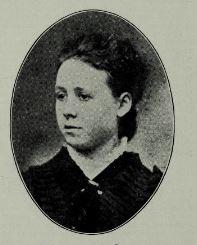Planning worship?
Check out our sister site, ZeteoSearch.org,
for 20+ additional resources related to your search.
- |
User Links
Search Results
[Why idle rest the hands today]
Appears in 4 hymnals Composer and/or Arranger: Chas. H. Gabriel Incipit: 55566 77123 21176 Used With Text: The Master's Call
[Why idle rest the hands today]
The Master's Call
Author: Mrs. Ida M. Budd Appears in 4 hymnals First Line: Why idle rests the hands to-day Refrain First Line: The Master calls, the harvest truly is great Used With Tune: [Why idle rests the hands today]
The Master's Call
The Master's Call
Author: Mrs. Ida M. Budd Hymnal: The Revival No. 3 #33 (1899) First Line: Why idle rests the hands today Refrain First Line: The Master calls, the harvest truly is great Languages: English Tune Title: [Why idle rests the hands today]
The Master's Call
The Master's Call
Author: Mrs. Ida M. Budd Hymnal: Sifted Wheat #130 (1898) First Line: Why idle rests the hands to-day Refrain First Line: The Master calls, the harvest truly is great Languages: English Tune Title: [Why idle rests the hands today]
The Master's Call
The Master's Call
Author: Mrs. Ida M. Budd Hymnal: Songs of the Pentecost for the Forward Gospel Movement #130 (1894) First Line: Why idle rest the hands today Refrain First Line: The Master calls, the harvest truly is great Languages: English Tune Title: [Why idle rest the hands today]
The Master's Call
Chas. H. Gabriel

1856 - 1932 Composer of "[Why idle rests the hands today]" in Sifted Wheat Pseudonyms: C. D. Emerson, Charlotte G. Homer, S. B. Jackson, A. W. Lawrence, Jennie Ree
=============
For the first seventeen years of his life Charles Hutchinson Gabriel (b. Wilton, IA, 1856; d. Los Angeles, CA, 1932) lived on an Iowa farm, where friends and neighbors often gathered to sing. Gabriel accompanied them on the family reed organ he had taught himself to play. At the age of sixteen he began teaching singing in schools (following in his father's footsteps) and soon was acclaimed as a fine teacher and composer. He moved to California in 1887 and served as Sunday school music director at the Grace Methodist Church in San Francisco. After moving to Chicago in 1892, Gabriel edited numerous collections of anthems, cantatas, and a large number of songbooks for the Homer Rodeheaver, Hope, and E. O. Excell publishing companies. He composed hundreds of tunes and texts, at times using pseudonyms such as Charlotte G. Homer. The total number of his compositions is estimated at about seven thousand. Gabriel's gospel songs became widely circulated through the Billy Sunday-Homer Rodeheaver urban crusades.
Bert Polman
Chas. H. Gabriel
Ida M. Budd

1859 - 1959 Person Name: Mrs. Ida M. Budd Author of "The Master's Call" in Sifted Wheat Ida M. Budd was born in 1859 in a log cabin in Saginaw County, Michigan. When she was three years old her parents moved to Milford, Michigan. She loved nature and books. She decided to be a school teacher, receiving her teaching certificate when she was fifteen. Her first poem was published in 1881. She is known for her poems for children.
Dianne Shapiro, from "The Singers and Their Songs: sketches of living gospel hymn writers" by Charles Hutchinson Gabriel (Chicago: The Rodeheaver Company, 1916)
Ida M. Budd


 My Starred Hymns
My Starred Hymns


